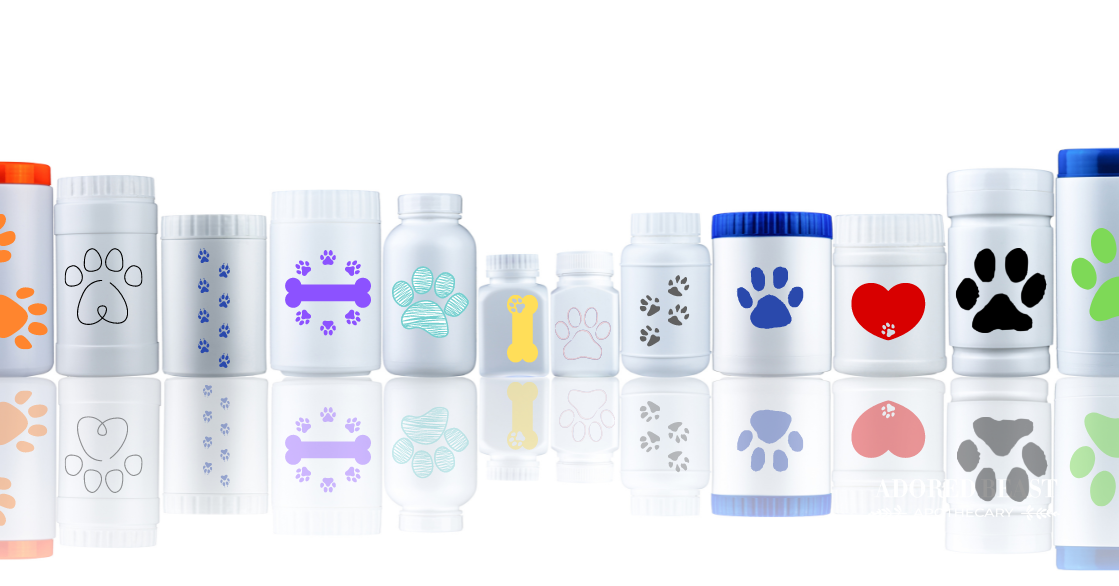What we give our animals on a daily basis – be it food or supplements – significantly impacts their health and longevity. Making informed, educated decisions about everything we do for them is our greatest responsibility as pet parents.
But sometimes, the best intentions can go awry, often because of misinformation, misunderstandings, or just being downright overwhelmed by the multitude of choices.
With the natural pet supplements industry growing by leaps and bounds, this is really important!
There are literally countless different products out there offering this, that, and the other thing when it comes to pet health! Many of these are incredible products that can really help our animals. Some, just like anything else, are not.
But even the ones that are fantastic can be misunderstood.
In this post, we’re talking about some of the most common misconceptions about natural pet supplements. This is essential information, and it may just change the way you look at these products and how you care for your animal!
Common Misconceptions About Natural Pet Supplements
1. Natural Actually Means Natural
The definition of natural is existing in or caused by nature; not made or caused by humankind.
That’s both a broad and very narrow definition. But in the end it means one very specific thing when it comes to natural pet supplements – the ingredients, theoretically, only come from nature.
The thing is, there is very little regulation in the pet health supplement industry, so if a company chooses to call their product natural, there’s no watchdog digging deep to determine if it actually is. That’s left up to us as pet parents. So it’s important to understand that just because something says natural, there’s a chance that not everything in that bottle is “from nature.”
The same goes for organic. Just because a label says organic, that doesn’t mean that everything in that bottle or jar is organic. It might mean that one ingredient is, or it might mean two are. It does not mean ALL are.
The bottom line here: read those labels/websites very carefully!!
2. The Suggested Amount is Right for Every Animal
Suggested servings are just that, suggestions. These suggestions, at least in Adored Beast’s case, are based on careful research, and the ideal amount for an animal to get the benefits from a specific supplement. But each animal is different. Each body is different. What works for one doesn’t necessarily work for another. Sometimes a smaller dose is the perfect amount.
When introducing any new supplement to your animal’s routine, we recommend starting out smaller to give the body time to adjust to the change. Then, gradually increase to the recommended dose. Sometimes, the body needs just a nudge. With Adored Beast, if your animal takes less we celebrate – we are not worried your product will last longer, we are happy to hear that the synergy of the formula is triggering a positive response! You might just find that your animal has a sweet spot that is different from the average animal!
3. Bigger is Better, More is Better
Sometimes, the bigger the bottle or jar, the more binders and fillers. In this case, a larger dose has to be recommended because that’s the only way to deliver whatever the ingredients are that are needed for your animal.
Take phytoplankton as the perfect example of this. Phytoplankton is a very potent whole food. The body requires very, very little to get some big benefits. And when we say very little we mean it – our suggested amount for Phyto Synergy is 1/16th teaspoon. Sometimes it’s hard to comprehend the fact that bigger is NOT better, but remember, good things can come in small packages.
4. Supplements Need to Be Given Every Day
This is one of the most common misconceptions about natural pet supplements – or any supplements really. In most cases, they don’t need to be given every day! Often they’re best if given at specific times of the year, after certain events, or just in rotation.
Many herbs, for instance, shouldn’t be used long term. Some are best if used for short periods of time to address a specific issue, then put away again. While many natural ingredients have major benefits to the body, that doesn’t mean the body needs (or even wants) them every day! Take breaks and give the body a rest. When an animal is healthy, giving them the chance to reset is often just as beneficial.
An example of this is our Liver Tonic. It’s a very valuable natural pet supplement that helps support the organs. But in most every case, it doesn’t need to be taken every day. Instead, we recommend it at certain times of the year to help the body detox. Unless of course your animal has chronic liver, pancreas, or kidney issues, then daily or even two to three times a day is very safe and very effective!
Rotation is also important. In the case of probiotics, diversity is key, so you want to rotate to give the gut what it wants – more diverse, different strains of beneficial bacteria. By doing a cycle of different probiotics, you’re able to deliver that diversity, along with various other herbs and nutraceuticals that have varying benefits and help support different systems of the body. With Adored Beast, Julie has an eye on all the systems of the body when formulating so by rotating you will also feel confident that you have supported your animal’s entire body.
5. Animals Don’t Need Supplements if They Eat a Balanced Diet
A balanced diet, no matter what type of diet that is, is so vital to overall health. We believe a raw, whole food, species-appropriate diet is the best way to ensure an animal is getting everything they need from food. But – that doesn’t mean that food can provide everything they need to thrive.
A good example of this is pre and probiotics. Yes, of course you can get pre and probiotics from food. Many fruits and vegetables contain prebiotics, and you can add things like kefir or fermented vegetables for probiotics. But for the gut (and therefore the body) to be as healthy as possible, diversity is key for the two elements to be well balanced.
Another example is omega-3s. If you feed fish, sardines lets say, a few times a week, your animal is getting omega-3s from their food. But is this enough to meet their nutritional needs? Not likely. In this case, you’d want to add an omega-3 supplement to boost it. As always, our choice will always be one that’s sustainable, ethically harvested, and high in EPA and DHA, like our Potent-Sea.
Don’t fall prey to these common misconceptions about natural pet supplements. It’s easy to get overwhelmed by the selection and information out there, but sometimes simple is better, less is more, and a lot of love goes a long way.












